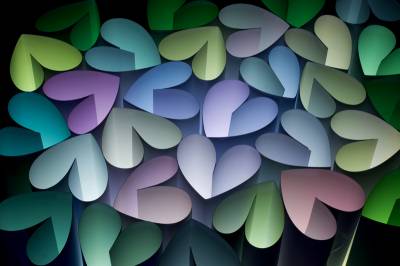 Sorrow is a universal human experience. It is feeling all too familiar these days.
Sorrow is a universal human experience. It is feeling all too familiar these days.
Years ago, when Haiti was slammed with devastating storms, a woman said when the first storm came through she lost her home, when the second one came through she lost all eight members of her family. She was now left with one plastic pale and the clothes on her back. That’s it, that’s all she had.
Two thoughts come to mind with the enormity of that kind of loss.
One, I am reminded of the concept of medicine as in the American Indian medicine pouch. The pouch might contain a feather or piece of bone that symbolized an experience where the individual came to understand their inherent strength of character, an aspect of self.
Medicine in this context is defined as power, and a power that can never be taken away from you. Therefore, it is not your car, your job, your bank account or your relationship. Medicine is what you are made of; it is the wealth of your experiences and wisdom. It is the you that has been stretched, fired and tempered by life. It is how you perceive the world, see yourself and choose to be in the world.
Loss of any variety or potency requires some personal medicine. Grief is crazy-making. It takes time to accept the unacceptable. It takes time to feel the undulations and reverberations of loss. The attachment has been severed; there is a hole. And, usually, all we want to do is fill the hole with what was. Because – and here is my flair for the obvious – loss mandates change. And change is often uncomfortable, new and unknown. This makes loss scary. The road ahead becomes rocky; walking becomes an effort to maintain balance and stay upright.
Sorrow stretches a heart and teaches us a whole new way to open our hearts and love. Sorrow cracks us apart and can bring us to the edge. Sorrow is transformative. It rearranges priorities and possibilities.
My second thought is of Blanche DuBois from Tennessee Williams’ “A Streetcar Named Desire.” Blanche allowed that she relied upon the kindness of strangers. I think all denominations of heartache require kindness.
And in what might be a kind of emotional homeopathy, what cures a broken heart is more heart medicine. Be it the sharing of a common experience or as Joan Didion described in A Year of Magical Thinking, the simple act of a cup of tea and sandwich left for her as the bleary-eyed and numb survivor. It can be the hand held in the hospital, a hot meal, shoes and a coat for the winter or the kind word that comforts the depleted and weary. In some ways it matters little what it is, what matters most in the connection, heart to heart, that says, “I care.”
We heal through our heart connections, be it the ones we have lost and hold close or be it the ones who bear witness to our grief journey and tend to our shattered hearts.
Grief, which is another way of loving, and caring, are potent medicines that speak directly of the power of the heart. And the elements of the heart — caring, acceptance, forgiveness, gratitude, kindness, generosity — lead us to healing.